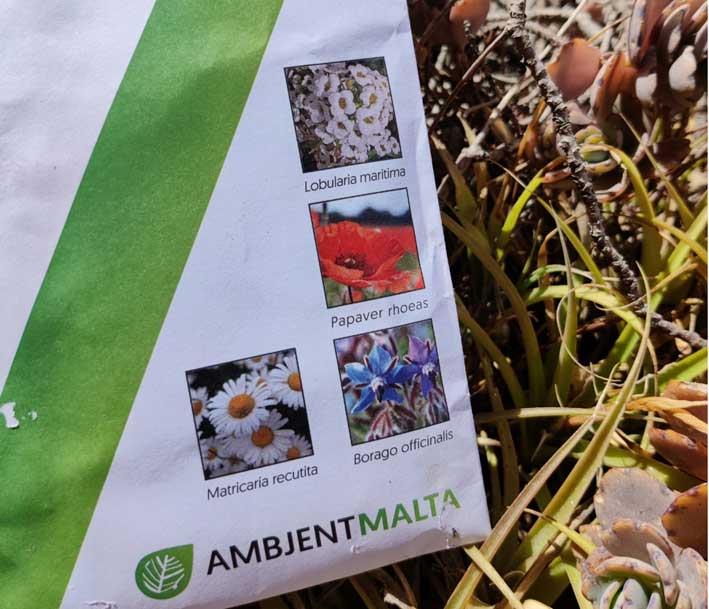A few days ago my family, like many other families around Malta, received a small envelope from the Ministry for the Environment, Climate Change and Planning. In this envelope was another envelope with seeds and a short pamphlet letting us know what plant seeds we were given and how to plant and care for them.
At first glance, this is a great initiative. A relatively cheap and easy way to encourage people to grow some plants at home. You could be saying "how could anyone possibly complain about such an initiative?" and you'd be right. From a practical standpoint, the plants do not require a lot of work or effort to plant and grow; they are local species and hence we are promoting local wildlife and it is one of the cheaper environmental initiatives to undertake, and so the burden on the taxpayer is not so significant. From an aesthetic standpoint, we get to have more pretty flowers decorating our windowsills and gardens.
The real issue is not with the method, it is with a concept that is often underestimated and overlooked here in Malta - the science. I have read and heard a great number of arguments about this initiative. As with anything else, some arguments are well formulated and the issues and suggestions raised are good and valid. On the other hand, some arguments are not so well put together and clearly steeped in ignorance and partisanship. Back to the seeds, while I believe that the concept behind this initiative is good, the science behind it is sorely lacking.
Firstly, there seems to be a lack of understanding of the scientific nomenclature. The flowers are described as endemic species when actually they are indigenous. Endemic means that the species is only found in Malta and nowhere else in the world. We do in fact have some 29 such plant species (for example our national flower, the Maltese Rock Centaury - Widnet il-Baħar), but none of these were represented in the envelope. Indigenous on the other hand means that the species is native to Malta but are also found in other places, a definition that applies to the seeds provided, so much so that these seeds were not collected from Malta, but were bought from abroad. Now this might seem like a trivial issue but it is an important distinction that changes the message behind this initiative.

On the back of the pamphlet, we are told to consider planting these seeds in order to grow Malta's biodiversity. The problem here is that since these plants are already present in Malta it will not increase our biodiversity no matter how many of them we grow. Biodiversity is the variety of life in a place, hence, since these plants are already present in our islands, they cannot increase the variety. What this programme can claim to do for biodiversity is to increase the populations of the species in question.
The claim that this programme can preserve our biodiversity is also not quite correct, however. The four-plant species provided are not in any way endangered or even at risk locally. These are wild flowers that are incredibly resilient and hard to get rid of. So much so in fact that they are often considered weeds in agricultural settings. If I were to throw the packet of seeds out my window and onto the road in front of my house, I would probably find that some of them would manage to grow in the cracks of the pavement. These are not the plants that we Maltese should be worried about protecting.
Then there is the question of the local gene pool. Being imported from overseas, these plants will introduce new genetic diversity in the gene pool of the local populations. Isolated populations on islands tend to develop unique genetic traits. Such traits may be disrupted if the gene pool is "contaminated" by imported genetic material. It is a matter of debate if this is of any significance for these four particular species, but it is nonetheless a consideration that has probably not been taken into account.
Finally, the plant species selected for this initiative are annuals, meaning that they will grow, flower and die, surviving as seeds which will repeat the process the following year. It is likely that once planted in a suitable patch of ground, they will self-sow and will persist, but they might not do so if planted in a flowerpot or a window box, and it is doubtful if many people are going to collect the seeds and plant them again the following year.
It is a great and noble effort that we are trying to promote our local environment but the way this was done is further evidence of a recurring problem in Malta. Ministers and politicians from all parties charge headfirst into issues and make decisions without consulting scientists and experts in the field. How much more money and time are we going to invest in programmes and ideas that will not really make any significant change? Would it not be better if instead of trying to fix the problems, we do not create them in the first place?